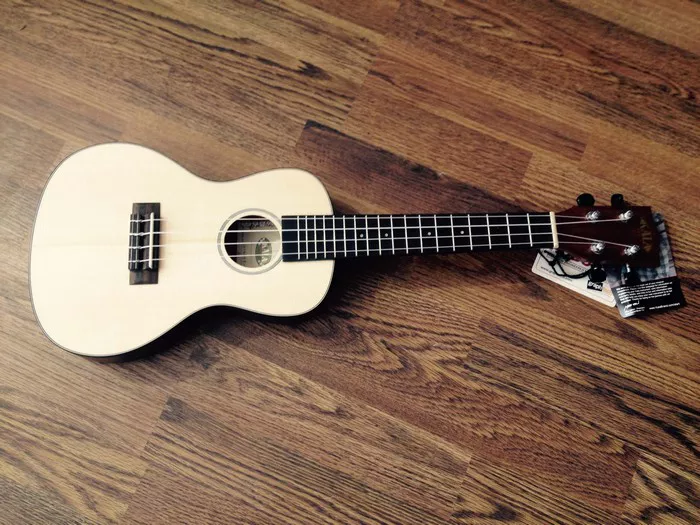The transition from one musical instrument to another can be both exciting and daunting. For guitar players looking to venture into new musical territory, the ukulele often emerges as an appealing option. With its smaller size, simpler chord structures, and unique tone, the ukulele presents a refreshing change of pace for those accustomed to the six-stringed world of the guitar. In this article, we delve into the question: Is the ukulele easy for guitar players? We’ll explore various aspects of both instruments to understand the similarities, differences, and the ease of transition for guitarists.
1. String Complexity
One of the most apparent distinctions between the ukulele and guitar lies in their string complexity. While the guitar boasts six strings, the ukulele features a modest four. This reduction in strings immediately simplifies the learning curve for guitarists making the switch. With fewer strings to contend with, beginners can focus their attention more efficiently, leading to quicker progress.
Moreover, the simplicity of ukulele chords is a significant advantage for those transitioning from guitar. Ukulele chords often involve just one or two fingers, in stark contrast to the more intricate fingerings required for certain guitar chords. This simplicity not only accelerates the learning process but also boosts confidence, as players can swiftly master basic chord progressions and begin playing songs in no time.
2. Size and Playability
Another factor that contributes to the ukulele’s appeal to guitarists is its size and playability. Ukuleles are considerably smaller than guitars, typically ranging from 35% to 50% in size reduction. This smaller size not only makes the ukulele more portable but also enhances its comfort during play, especially for beginners who may find the bulkiness of a full-sized guitar daunting.
The compact size of the ukulele also translates to easier handling. Its lightweight nature and reduced fretboard size make it more manageable for players of all ages and skill levels. Novice guitarists transitioning to the ukulele often find it refreshing to hold an instrument that feels less cumbersome, allowing them to focus more on technique and less on physical strain.
Furthermore, the presence of frets on the ukulele contributes to its playability. Unlike the guitar, where fret spacing can pose challenges for beginners, the frets on a ukulele are closer together, making it easier to hit the right notes and play in tune. This feature is particularly beneficial for guitarists accustomed to the wider fretboard of their instrument.
3. String Types and Tone
The difference in string types between the ukulele and guitar also plays a significant role in the transition process. Ukulele strings are typically made of nylon or a similar flexible material, resulting in a softer, warmer tone compared to the bright, metallic sound produced by metal guitar strings. This tonal distinction not only adds variety to a guitarist’s repertoire but also offers a more mellow and relaxed playing experience.
Many guitarists find the softer strings of the ukulele more comfortable to play, particularly those who struggle with finger pain or calluses from extended guitar practice sessions. The gentler feel of nylon strings can encourage longer playing durations and foster a deeper connection with the instrument.
4. Tuning Differences
Understanding the tuning differences between the ukulele and guitar is essential for guitarists making the transition. While both instruments share some similarities in tuning, such as the highest-pitched strings being tuned in a similar manner, there are notable differences to be aware of.
The standard tuning for a ukulele is G-C-E-A, whereas the guitar is tuned E-A-D-G-B-E. While this variance may initially pose a challenge for guitarists accustomed to standard guitar tuning, it also opens up new possibilities for exploration and creativity. Learning to navigate the unique tuning of the ukulele can expand a guitarist’s musical horizons and foster adaptability in playing different instruments.
5. Transferable Skills
Despite their differences, the ukulele and guitar share many fundamental principles of music theory and technique. This common ground allows for the seamless transfer of skills between the two instruments, making the transition smoother for guitarists.
One area where transferable skills shine is in strumming patterns. Basic strumming patterns learned on the ukulele can be easily applied to the guitar, and vice versa. This crossover enables guitarists to leverage their existing skills and repertoire when learning the ukulele, facilitating a quicker mastery of rhythmic techniques.
Similarly, familiar chord shapes on the ukulele can be adapted to the guitar, providing a shortcut for guitarists to learn new chord voicings and progressions. This familiarity with chord structures accelerates the learning process and empowers guitarists to explore new musical avenues with confidence.
6. Affordability and Accessibility
Finally, the affordability and accessibility of the ukulele make it an attractive option for guitarists seeking a new musical adventure. Ukuleles are generally more affordable than guitars, making them accessible to a broader range of players, especially those on a budget or unsure about committing to a new instrument.
Additionally, the beginner-friendly nature of the ukulele provides a “fast track” for guitarists to start making music. With its simplified chord structures, smaller size, and softer strings, the ukulele offers a low barrier to entry for aspiring musicians, encouraging experimentation and creativity from the outset.
Conclusion
In conclusion, the ukulele presents a compelling opportunity for guitar players looking to expand their musical horizons. With its simpler string complexity, smaller size, unique tone, and transferable skills, the ukulele offers a refreshing change of pace for guitarists seeking a new challenge. While the transition may require some adjustment, the similarities between the two instruments and the accessibility of the ukulele make it an inviting option for guitar players of all levels. Whether as a complementary addition to their repertoire or a standalone pursuit, the ukulele holds great promise for guitarists venturing into uncharted musical territory.


